
Intersections of Conviviality: Voices from Communities
Edited by Marina Gržinić, Jovita Pristovšek, Asma Aiad, and Anahita Neghabat
Cambridge Scholars Publishing, 2025
This book explores the nuanced dynamics that shape conviviality and examines the different ways in which individuals within communities navigate the challenges of the neoliberal, racializing European landscape by forming alliances that transcend identity, geographical and cultural boundaries. This book offers a very renewed reflection on different communities that are largely marginalized, Black and POC communities, Muslim communities and Trans*, building their context around identities such as migration, LGBTQI+ etc. and thinking out loud about institutional and structural racism, inequalities and also empowerment. Through personal narratives, academic analysis and artistic expression, the book creates a map of stories and narratives that celebrate the potential of communities and conviviality as a way forward. This book aims to make the voices of these communities heard and provides a platform for their stories, struggles, collective experiences, hopes and visions for the future.
This book was published with the financial support of the Austrian Science Fund (FWF) research project “Conviviality as Potentiality: From Amnesia and Pandemic towards a Convivial Epistemology” (PEEK AR 679, 2021–2025) and the Academy of Fine Arts Vienna.
Book Presentation & Discussion:
Tuesday, 27 May 2025 | 18:00 kex—kunsthalle exnergasse, WUK
kex—kunsthalle exnergasse, WUK
Währinger Straße 59, 1090 Vienna

Join us for an evening of presentation, discussion, exchange, and celebration, supported by kex—kunsthalle exnergasse.
Accessibility: kex is barrier-free and accessible via the courtyard elevator (B0).
We look forward to seeing you there!
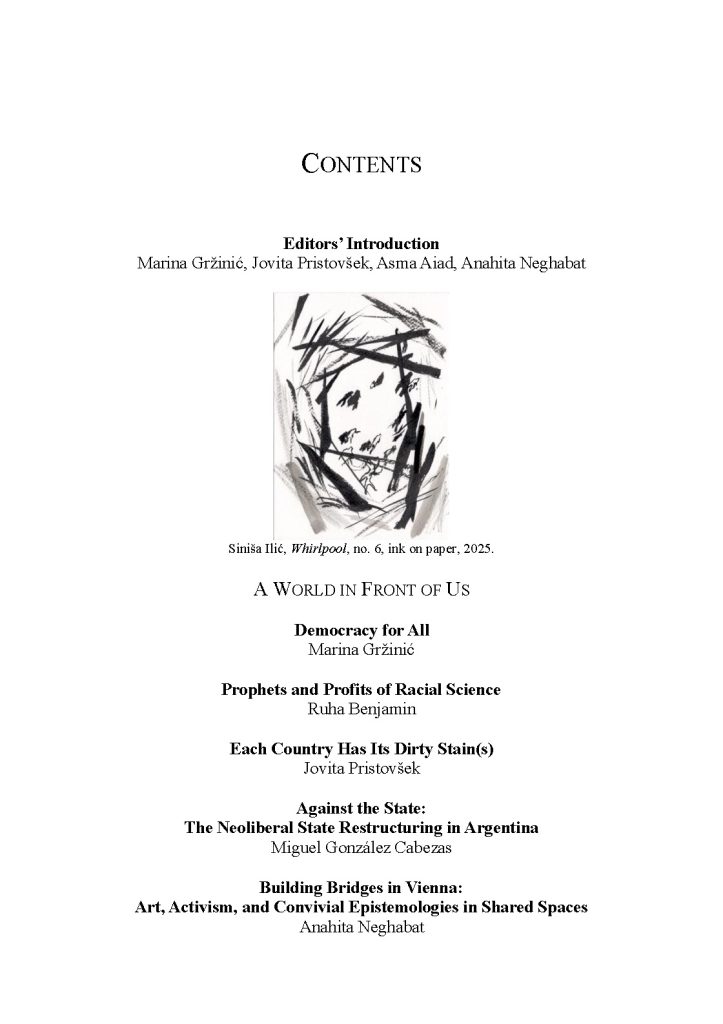
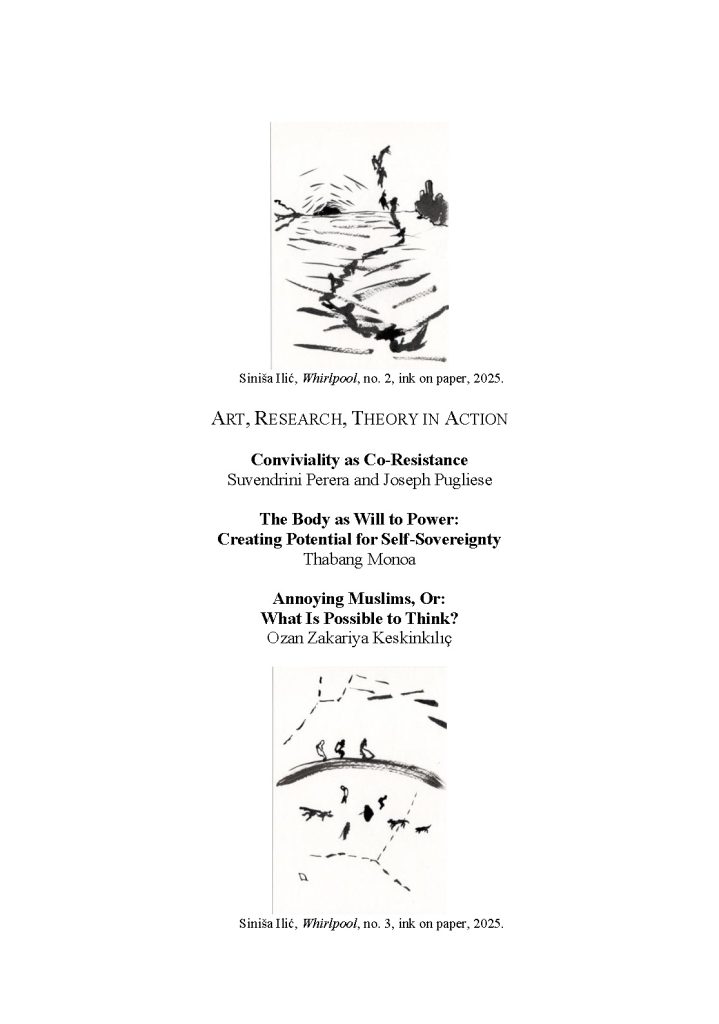
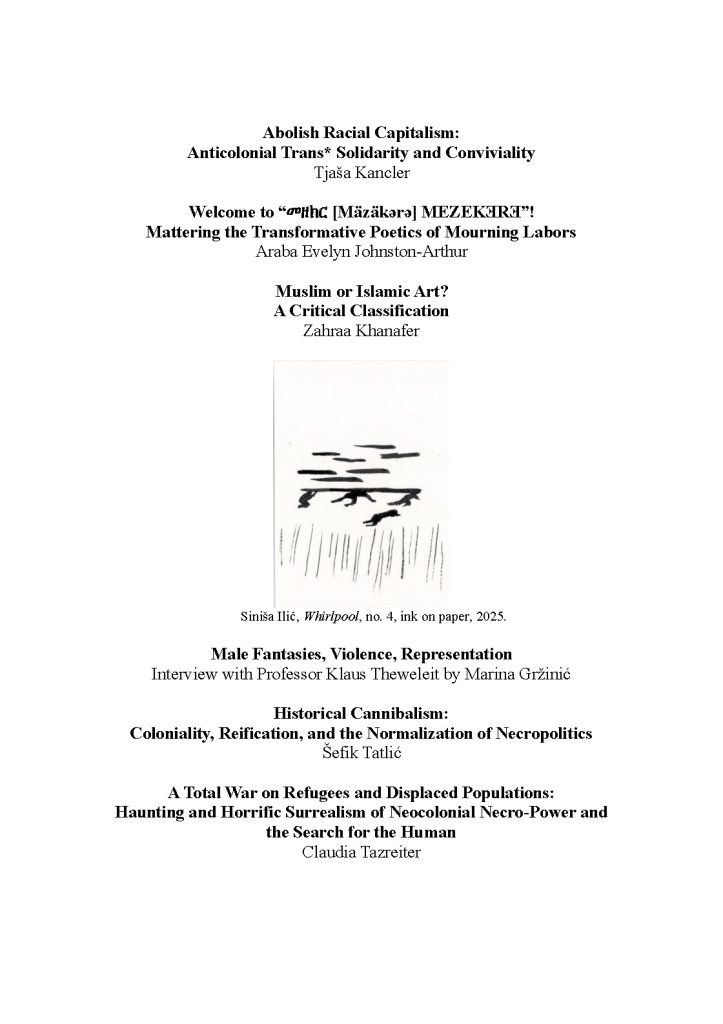
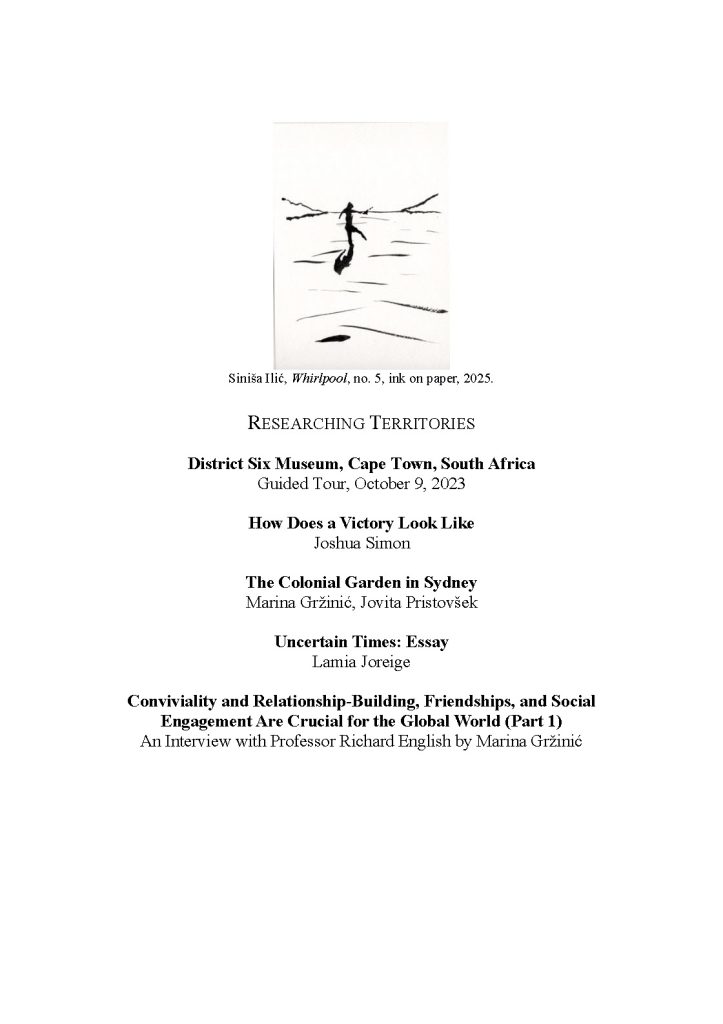
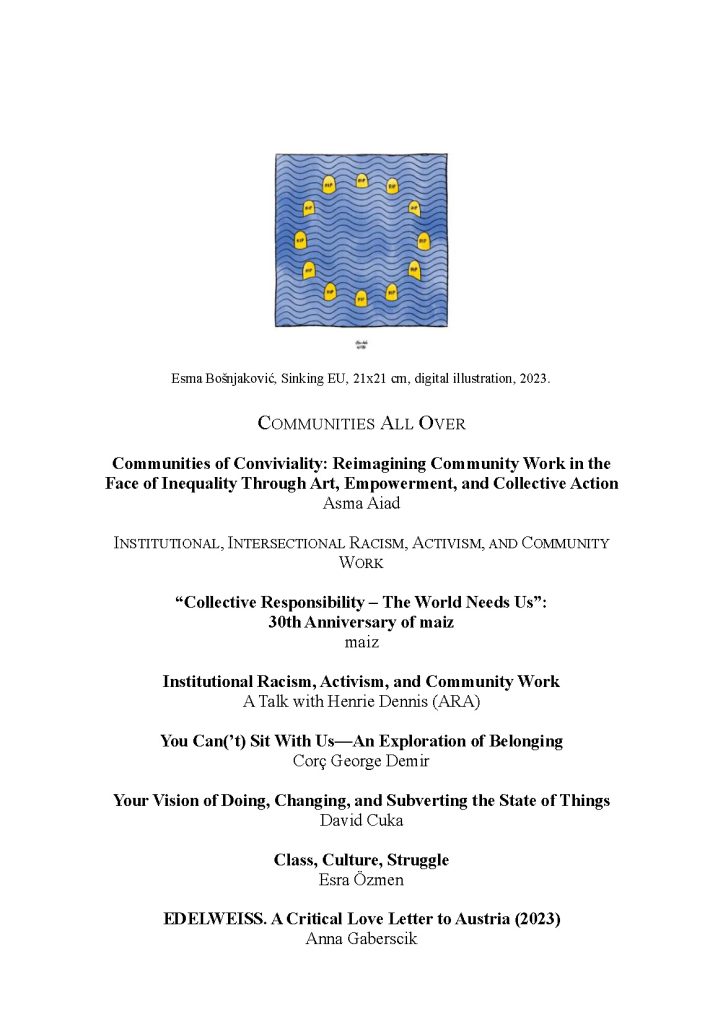
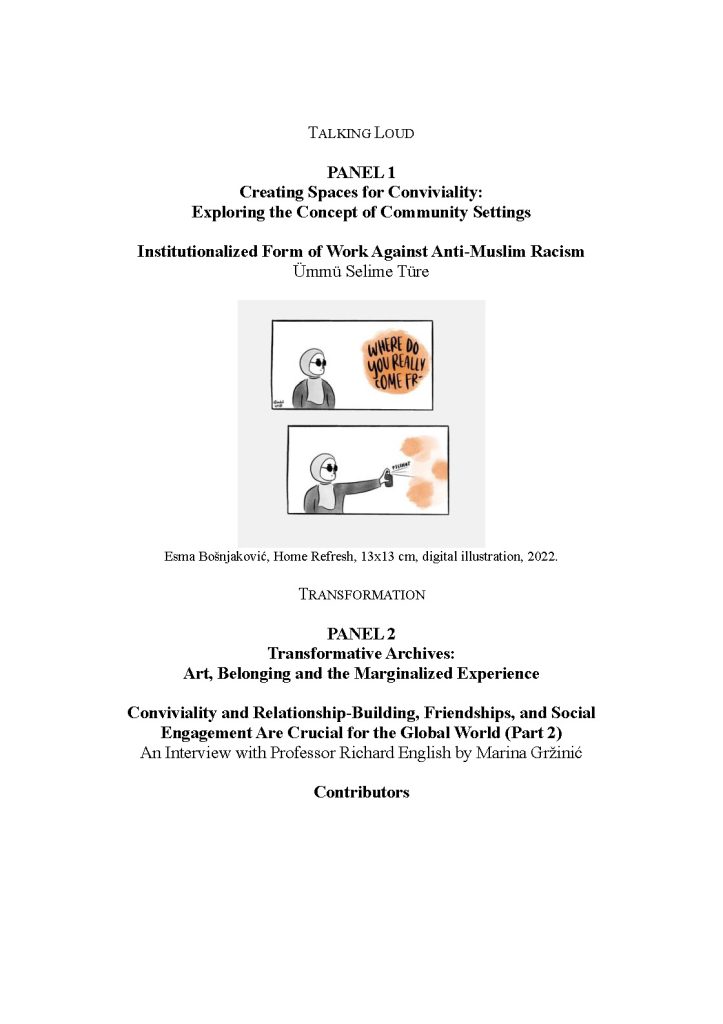
Editors’ Biographies
Marina Gržinić is a professor at the Academy of Fine Arts Vienna, Austria, and heads the Studio for Art and Intervention/Concept (Post-Conceptual Art Practices) at the Institute of Fine Arts. She is principal investigator of the art-based research project “Conviviality as Potentiality” (FWF AR679, 2021–25). She is also a Principal Research Associate at the Institute of Philosophy, ZRC SAZU (Znanstvenoraziskovalni center Slovenske akademije znanosti in umetnosti), Ljubljana, Slovenia.
Jovita Pristovšek is a postdoctoral researcher at the Academy of Fine Arts Vienna in the art-based research project “Conviviality as Potentiality” (FWF AR679, 2021–25) and a Research Assistant at the Institute of Culture and Memory Studies, ZRC SAZU, Ljubljana.
Asma Aiad, BA MA, is an artist, curator, and activist whose work explores the complexities of identity, culture, and transformation. Since January 1, 2024 until January 30, 2025, she has been working as a predoctoral researcher in the art-based research project “Conviviality as Potentiality” (FWF AR679, 2021–25) at the Academy of Fine Arts Vienna.
Anahita Neghabat, BA MA, is a social anthropologist, artist, and activist whose work engages with critical education, feminist ontologies and (anti-Muslim) racism. Since April 1, 2024 until January 30, 2025, she has been working as a predoctoral researcher in the art-based research project “Conviviality as Potentiality” (FWF AR679, 2021–25) at the Academy of Fine Arts Vienna.